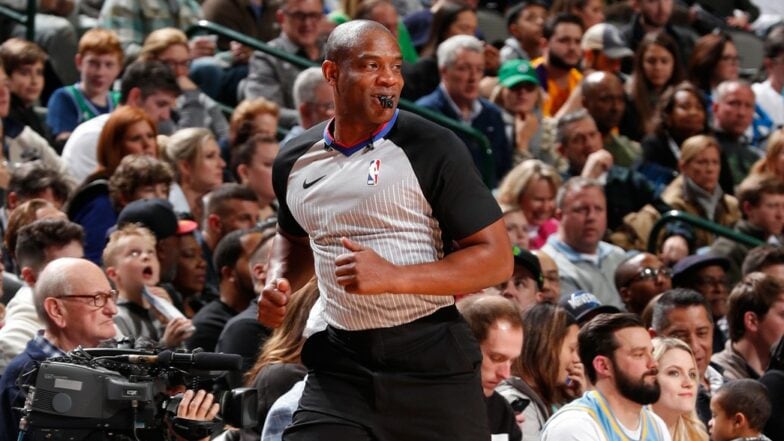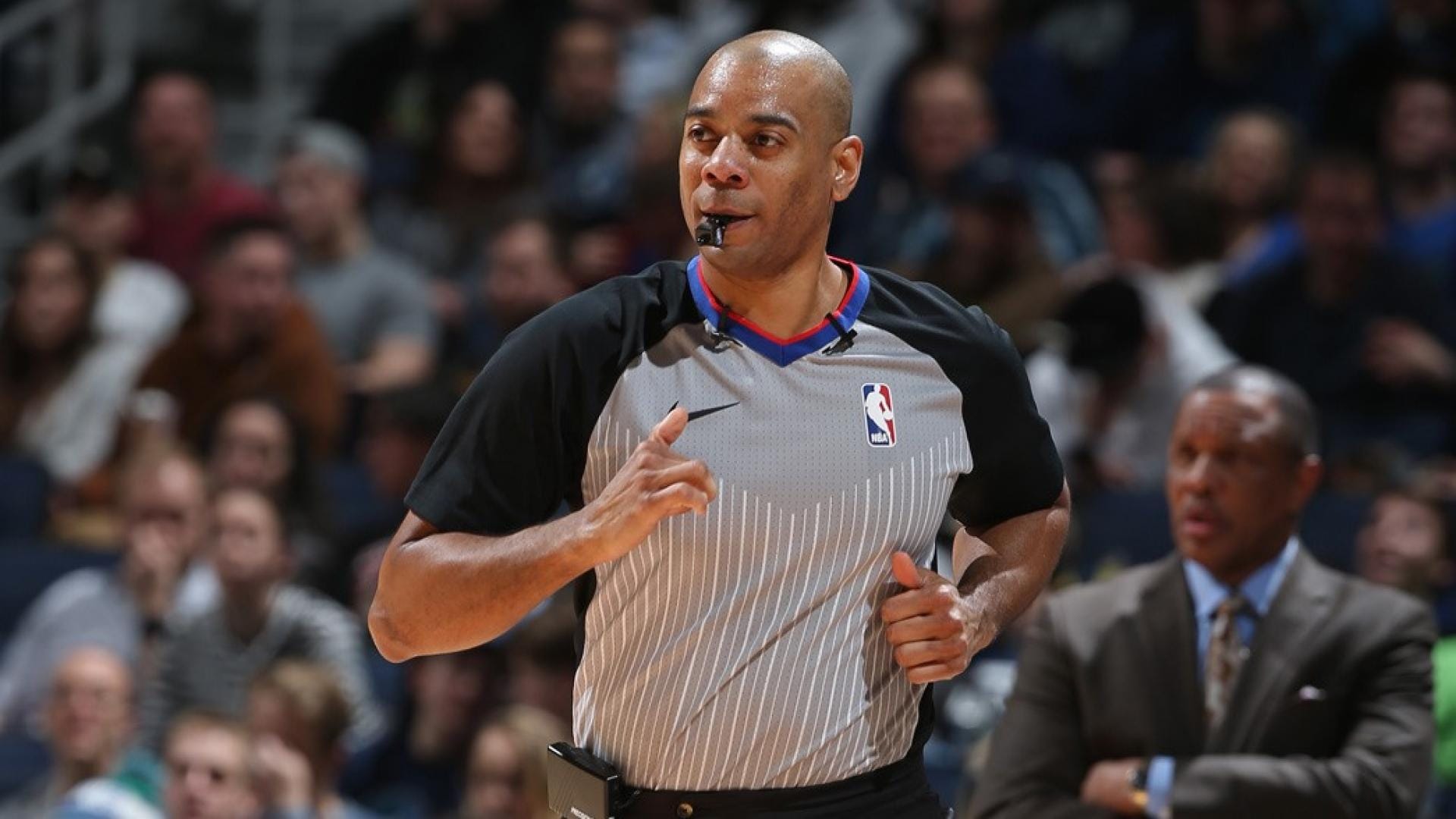
Of the 65 referees in the NBA this season, nine attended Historically Black Colleges and Universities. In celebration of Black History Month, we explore the unique bond that these officials have with one another and the impact that attending an HBCU had on their personal and professional lives.
We continue our series with Tony Brown, who graduated from Clark Atlanta University in 1989. Brown is in his 16th season as an NBA referee and entered the 2017-18 season having officiated 894 regular-season games and 15 playoff games. Prior to joining the NBA, he worked for four seasons in the NBA G League and CBA and three seasons in the WNBA.
Did you know that nine of the 65 NBA referees hailed from HBCUs?
Brown: No I didn’t. I knew there were a few but I didn’t know there were nine. If you ask most of us, it’s not enough. We still think the number is low (laughs). Now that I know there are more people that went to HBCUs on staff, I’m going to have to clearly make sure they know that Clark Atlanta is absolutely the best one around. And they missed out by not attending Clark Atlanta University (laughs).
Do you see any connective tissue as to why there are so many NBA referees that came through HBCUs?
Brown: I don’t think there’s any direct correlation to point to. I wish I had some method to the madness with it, but it’s good to know. I didn’t know there were that many. And I’m even interested to find out the ones I don’t know.
It’s funny because the HBCUs that the guys on our staff are from, it’s not that they’re within the same state in most cases. Except for Eric Lewis and me were both in Florida; he went to Bethume-Cookman and I started at Florida A&M before I ended up at Clark.
I did know that C.J. [Washington], Courtney [Kirkland] and Bennie [Adams] all went to Southern. And Bennie has mentored all of us. Everybody that’s come through coach [John] Guthrie’s system through the SEC training program, Bennie Adams, Leroy Richardson and Tom Washington were primary mentors for a lot of us.
HBCU Referees Series:
Karl Lane: Philander Smith College
Derrick Stafford: Morehouse College
Mentoring is such a strong theme when speaking with officials, how important is mentoring in this profession?
Brown: It helps you avoid the pitfalls. Really it’s a must for success because in this business you only grow by learning from your mistakes and your level of experience that you’ve gained through the eyes of other people. You’re not going to live long enough to make all the mistakes, but what helps you avoid that is getting proper direction when you get started. Even though the guys I just named they were my mentors and I know they mentored a lot of other guys because we came through the program, but that’s also what we do on a daily basis with everyone on staff. We look out for one another as best as we can to try to make sure that they avoid the mistakes that we made along the way. That’s where the growth comes in.
What made you decide to attend an HBCU?
Brown: Honestly, I went to an HBCU because of a basketball scholarship that I had to Florida A&M. I went there for basketball but I ended up leaving when the coach left. My choice was Clark Atlanta mainly because it was in Atlanta and I heard it was a good city for African-Americans to pursue success and my hope was to get a degree and then get a great job.
When I got to Clark I ended up not playing basketball there because the program was in transition and then tuition was out of control. That’s when my mom was like ‘Are you crazy, you just left [A&M], where you were in the state of Florida and everything is working out.’ But I went to Clark and took the chance. I ended up not playing but I still graduated on time and had a great time doing it. So it was a great life experience, and I understand the value of hard work by being there.
What impact did attending an HBCU have on your life?
Brown: It allowed me to see possibilities that I had not seen before. I grew up in Tallahassee, playing basketball all my younger years and Tallahassee is a very good college-orientated town, with a lot of diversity, which is great, but [going to Clark] afforded me something that I hadn’t seen before. Then being in Atlanta and at the Atlanta University Center, I saw so many progressive, successful black people in so many different fields. The city itself is known for its political structure and it was governed mainly by black people, which made me pay attention to politics more, whereas I had not before attending Clark. So going to an HBCU changed my view of the world, it gave me a broader perspective.
What was the best piece of advice someone gave you during college?
Brown: My brother told me, especially as a student-athlete, he really wanted me to make sure that I took my education seriously and made it a priority over the athletics. It was emphasized that I should put as much into studying as I did basketball and that was great advice. They can never take the education away from you. It just gives you a sense of pride; this is something that you earned and it helped broaden your thinking.
How was the transition from being a player to becoming an official?
Brown: The biggest transition for me was trying to always not follow the ball. Because as a player the action is always on ball, and you have to get out of the mindset of looking at the game as a player, basically understanding and anticipating movements and trying to just be a student of the game. Officiating and being a player are both done on instinct, it’s split second decisions. As a player you get out and you practice all of your moves way more than referees practice how they’re going to call a foul. But the great thing that bridges referees and players within the game is the way we watch video and learn the ebbs and flows of the game, and the intricacies of the game, which helps us become better and that’s what makes us great.
How important is the celebration of Black History Month not only to you personally, but in society in general?
Brown: It gives me such a sense of pride to see the nation embracing everyone’s culture. The great thing for me when I look at African-American pioneers – mind you there were several African-American pioneers that really helped mold my thinking as a young adult and kid – but for me there was none more important than my parents, who guided me and shared the stories of others’ greatness and willingness to lead the charge for change. I got to learn a little bit about all of them and they all achieved a special spot in my heart because they all had an impact, whether small or big, they impacted where we are today. It’s going to continue to be a work in progress but it looks good.









